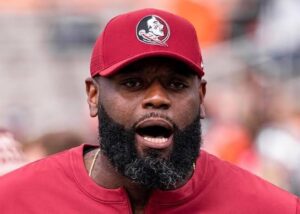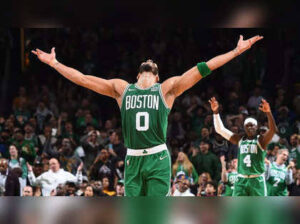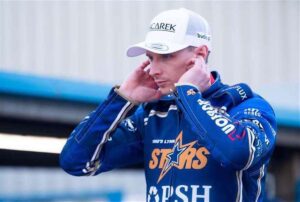The Dallas Cowboys sat on their hands at the trade deadline, a decision that owner Jerry Jones decided to defend in a manner that may concern fans.
The difference between good- and bad-process decisions can help describe the distance between the league’s best and worst teams. Some organizations tend to stay (non-)competitive for long stretches of time, for good reason.
The San Francisco 49ers beat this year’s NFL deadline and traded for star edge rusher Chase Young, the former second-overall pick who has been electric when actually on the field. He’ll make a strong defensive line even more dynamic, aiding their Super Bowl aspirations for the cost of a third-round pick.
Meanwhile, on the flip side of efficiency, the Chicago Bears traded for Montez Sweat, giving up a crucial second-round pick – bound to be a top-40 selection given Chicago’s struggles- for a pass rusher who all but said he didn’t want to play there.
So … One NFC team raised its ceiling, while the other may have dug its hole deeper than it already was.
Tuesday’s trade deadline came and went, and the Dallas Cowboys failed to make a move. It was disappointing, especially for those clamoring for running back or receiver or defensive help, but not the end of the world. Sometimes, the value doesn’t match up, the right deal simply doesn’t exist, or the future picks are necessary for salary cap relief.
If Dallas attempted to be aggressive, only to be subdued by the market and a lack of realistic deals then … fine. But … Defending the Cowboys’ decisions by deflecting to transactions made during another stretch of the calendar is useless.
Friday, Cowboys owner Jerry Jones failed to live up to that low bar on 105.3 The Fan.
“We made our trading deadline before the season started,” Jones said. “That’s why we traded for Stephon Gilmore, and that’s why we traded for Brandin Cooks. Thank goodness we had the opportunity to get that trading deadline done back before we started the season.”
No, that wasn’t a quote from some small-market baseball team trying to scrape its way into the Wild Card for some extra ticket sales. It was from the owner of the most valuable franchise in football. Of course, the existence of a salary cap means Jones’ wealth isn’t moving the needle, but the sentiment of sitting on one’s hands remains conservative – perhaps to a fault.
By the way, the Texas Rangers were very aggressive at the trade deadline. That worked out pretty well.
But back to Dallas, and Gilmore and Cooks: It doesn’t help that neither of those offseason acquisitions have proven particularly fruitful.
Gilmore’s game-ending interception against the Los Angeles Chargers was certainly meaningful. But he’s given up the ninth-most yards in man coverage this season (per PFF) and has been overshadowed by strong play from others in the cornerback room. If not for cornerback DaRon Bland’s ascension and slot corner Jourdan Lewis’ strong day against Los Angeles Rams receiver Cooper Kupp, the Gilmore discourse could very well be more poignant.
Likewise, Cooks – despite turning it on lately with two TDs in his last two games – simply hasn’t been effective this year. It may be too early to disentangle him from his role in an offense that struggled to get off the ground before the bye week. The production, though, is concerning: 16 catches for 158 yards and two scores in six games.
Just because Dallas’ roster is imperfect doesn’t mean a trade had to be made on Tuesday. The same could be said for the Philadelphia Eagles, Seattle Seahawks, Detroit Lions and the 49ers.
They all got better. The Cowboys chose not to. The least Jones could have done was defend the decision in a manner that actually made sense. And claiming Octobers moves are unneeded because March moves were made does not make sense.








